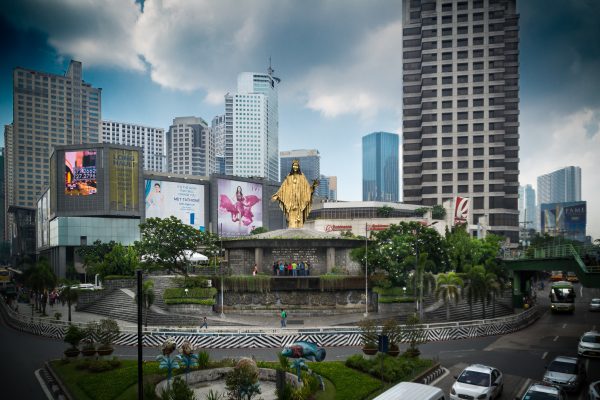
Election protests have shaped Philippine politics for the past three decades and there are signs that the upcoming 2022 presidential elections will be similarly divisive.
In 1986, the late dictator Ferdinand Marcos was accused of rigging a snap presidential election. A protest walkout by election computer programmers drew sympathy from the public and members of the armed forces, which eventually led to the ouster of Marcos through a peaceful People Power uprising.
In 1992, the election victory of Gen. Fidel Ramos was challenged by lawyer Miriam Defensor-Santiago, who was placed second in the presidential race. Santiago was initially leading in the counting but narrowly lost in the final tally. She alleged that Ramos’ camp manipulated the results. She filed a protest but the Supreme Court dismissed her petition.
In 1995, the Senate election results were disputed by some candidates who claimed that dagdag-bawas (vote padding, vote shaving) operations undermined the vote-counting process. A similar complaint was lodged during the 2007 Senate election, which led to the unseating of an elected senator after evidence of fraud was presented.
Dagdag-bawas became synonymous with cheating in the manual elections. The most controversial dagdag-bawas allegation involved former President Gloria Arroyo, who was implicated in an incriminating voice recording between a candidate and an election officer during the 2004 presidential election. Arroyo was reelected that year amid widespread criticism that she wantonly mobilized government resources to guarantee her victory.
Protests erupted when the recording evidence was made public in 2005. Arroyo publicly apologized for her “lapse in judgement” although she denied that she committed an election violation. Because of the vote cheating scandal, Arroyo’s presidency was threatened by several impeachment complaints, coup rumors, and massive street protests. She was able to finish her term even if her credibility and popularity suffered an all-time low.
The opposition was declared the winner in the country’s first automated elections in 2010. There were high expectations that automation would render dagdag-bawas obsolete but some are skeptical about the accuracy of the digital counting process. There have been instances over the past 11 years when results were questioned because of suspicious vote patterns, machine malfunctions, and technical glitches in the transmission of results. But the lack of hard and concrete evidence of election fraud has prevented losing candidates and watchdogs from rejecting the validity of overall results.
In 2016, former Senator Ferdinand “Bongbong” Marcos Jr. lost the vice presidential race to then Congresswoman Leni Robredo, the candidate of the previous ruling party. Marcos protested his loss and alleged that he was cheated in several provinces. He lost his petition with the Supreme Court unanimously ruling with finality in February 2021.
Marcos and Robredo are among the presidential candidates in 2022. They are also both leading in pre-election surveys, though Marcos is facing several disqualification cases. Petitions question his eligibility as a candidate because of a previous criminal conviction record related to his failure to pay taxes in the 1980s.
This is not the first time that a popular presidential candidate has had to hurdle a disqualification petition. In 2004, the candidacy of actor Fernando Poe, who was running against President Arroyo, was questioned because his parents were not Filipinos. Twelve years later, his daughter Senator Grace Poe faced questions too about her citizenship. In both instances, the disqualification petitions were dismissed, but the father and daughter also eventually lost in the elections.
Marcos claims the pending petitions were intended to distract his campaign. He faces a tough battle ahead as he confronts the same constituency which successfully ousted his father in 1986 and defeated him in the 2016 vice presidential race. His formidable critic also includes no less than President Rodrigo Duterte, who has indirectly labeled him a weak leader and cocaine user.
Marcos should not be complacent despite consistently leading in election surveys. Anti-Marcos forces, which continue to demand justice and accountability, have the ability to wage a strong grassroots campaign that can potentially erode his popularity in the months leading up to the May 2022 election. Robredo’s team can mount the same election strategy that defeated Marcos in 2016. Meanwhile, Duterte could potentially use his influence to disqualify Marcos by canceling his certificate of candidacy.
Marcos’ decision to run as president has revived memories of the country’s painful experience during the Martial Law era. Part of this remembering is how voters linked arms with others to oust Marcos the dictator in 1986 and defeat his son in the polls in 2016. This legacy is reinvigorating opposition forces which are readying a decisive encounter not just against Marcos but also against the political dynasties supporting his family’s bid to return to power.
Three Decades of Election Protests in the Philippines
Source: Frappler

0 Comments